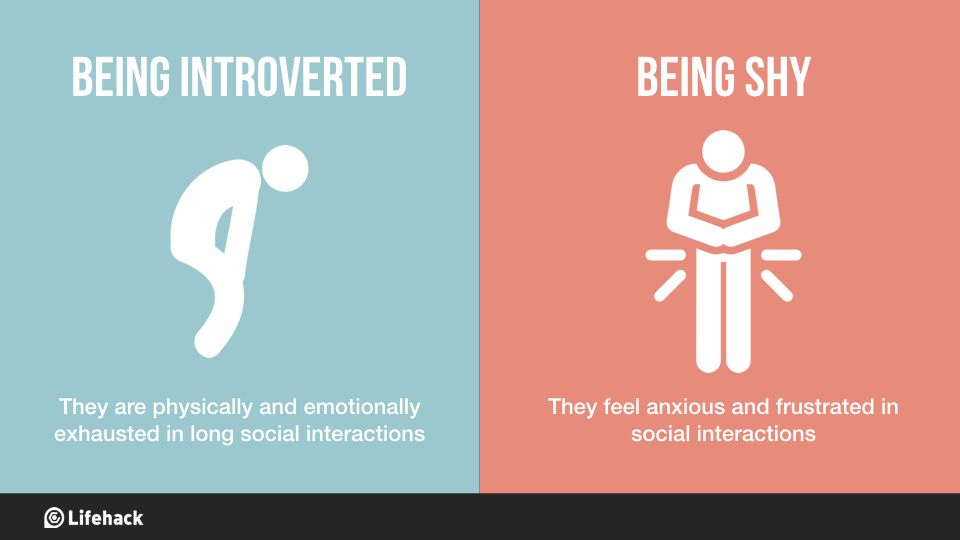Rejecting a narcissist hoover
9 Signs of Narcissist Hoovering & How to Respond
A relationship with a narcissist usually feels like a never-ending walk on eggshells. This is because narcissists have exaggerated feelings of self-worth, always putting their needs first. As a result, they commonly display self-centered, controlling, and manipulative behavior, demanding excessive attention and admiration.
Narcissists need someone to blame for their problems and failures to admire them and feed their egos. In return, they will do anything to diminish your sense of self-worth and make you doubt yourself in every situation.
They will hoover up all the positivity and optimism you may experience, leaving you drained, confused, and helpless.
What is Hoovering?Hoovering is a manipulation strategy narcissists use to keep their victims in or suck them back into a toxic relationship. Narcissists use this type of emotional abuse when they sense that their victim is seeking to pull out of the narcissistic abuse cycle.
In an attempt to test whether their victim can be pulled back into another cycle of abuse, a narcissist may reach for hoovering. They may use manipulation and lies to convince the target to return to the dysfunctional relationship.
Narcissist hoovering can cause emotional and physical distress to a victim, sucking up the positivity and happiness from the victim to feed own narcissistic impulses.
Why Do Narcissists Hoover?Soon enough, most people who are involved with narcissists find themselves trapped in a narcissistic abuse cycle, becoming a narcissist supply.
A relationship with the narcissist is based on emotional dependency, where the narcissist requires you to feed their ego constantly. Once they decide they don’t need you as a narcissistic supply anymore, the narcissist will cast you aside and abandon you with no remorse or compassion.
If you decide to stand for yourself and ask for empathy, integrity, and reciprocity, the same will happen.
However, narcissists typically come back for more. So, your narcissistic ex will most likely want to come back to your relationship and start their cycle of abuse all over again as long as they need you as a supply.
They will use hoovering to manipulate you back into a relationship. For example, they may promise to change, threaten you with self-harm or suicide, or proclaim their love for you (even though they have struggled to show their feelings before). They may even appear apologetic for their past behavior, promising not to repeat such mistakes ever again.
Recognizing the signs of narcissist hoovering techniques can help you protect yourself and break free from a toxic relationship.
So, here are nine signs of narcissist hoovering and how to respond to it.
9 Signs of Hoovering1) Love BombingA narcissist will do anything to manipulate you back into a relationship. They will bomb you with acts of adoration, attraction, and love.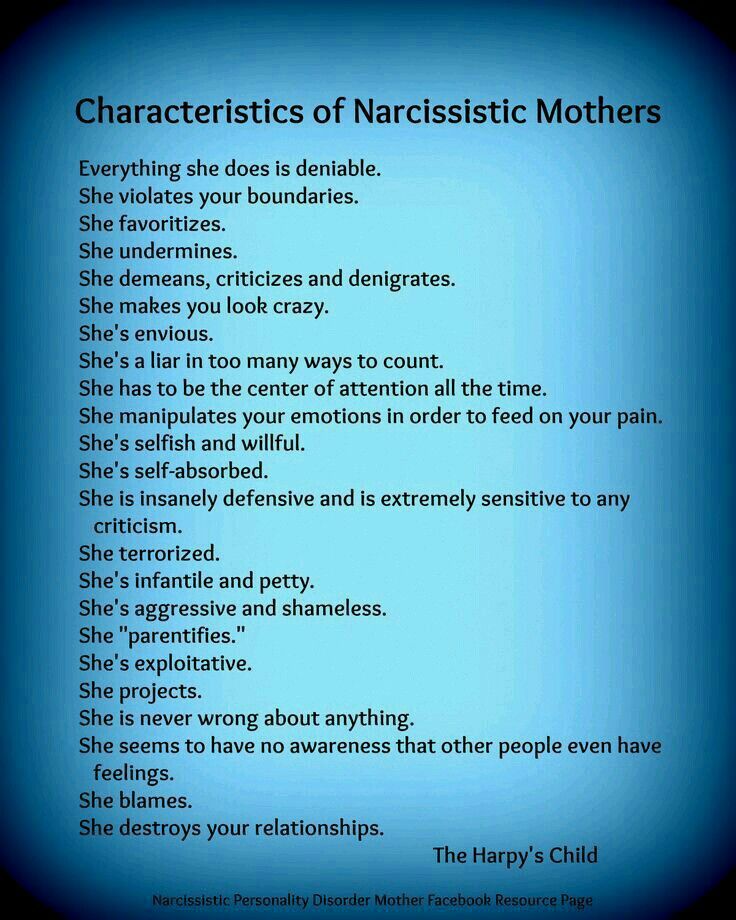 For example, your narcissistic ex may send you romantic messages, shower you with flattering comments or acts of affection (leave love notes on your car windscreen, have a bouquet delivered at your doorstep, etc.).
For example, your narcissistic ex may send you romantic messages, shower you with flattering comments or acts of affection (leave love notes on your car windscreen, have a bouquet delivered at your doorstep, etc.).
A narcissist may dramatically appear at your door, declaring their sincere love for you.
3) Making AccusationsYour narcissistic partner might also make accusations to provoke you into feeling guilty and defending yourself. For example, if you refuse to see them after a breakup, they will accuse you of already dating someone else. This hoovering strategy gives them a sense of control and power.
4) Threatening to Harm ThemselvesA narcissist always seeks attention. Also, they thrive on drama, so they may threaten you to hurt themselves, commit suicide, or do something else extreme if you don’t answer their reconciliation pleads.
5) Random Calls or Texts out of the BlueThey might contact you out of the blue, pretending nothing has happened. For example, a narcissist will call to tell you they dreamt about you or ask you whether you still have their book to manipulate you into a conversation.
For example, a narcissist will call to tell you they dreamt about you or ask you whether you still have their book to manipulate you into a conversation.
Narcissists often use triangulation to pull other people into your relationship dynamic. For example, they might spread rumors and gossip about you to mutual friends, neighbors, and acquaintances, jeopardizing your reputation, relationships, and confidence.
7) Making Big PromisesThey might pledge never to repeat the past mistakes in the future, promising you an idyllic relationship or the things you have always dreamed about.
8) Apologizing and Telling You They’ve ChangedIn an attempt to pull you back into a toxic relationship, a narcissist will show remorse, trying to convince you that they have changed.
9) Creating Fake EmergenciesThey may call you in the middle of the night over a fake health emergency or crisis, asking for your help.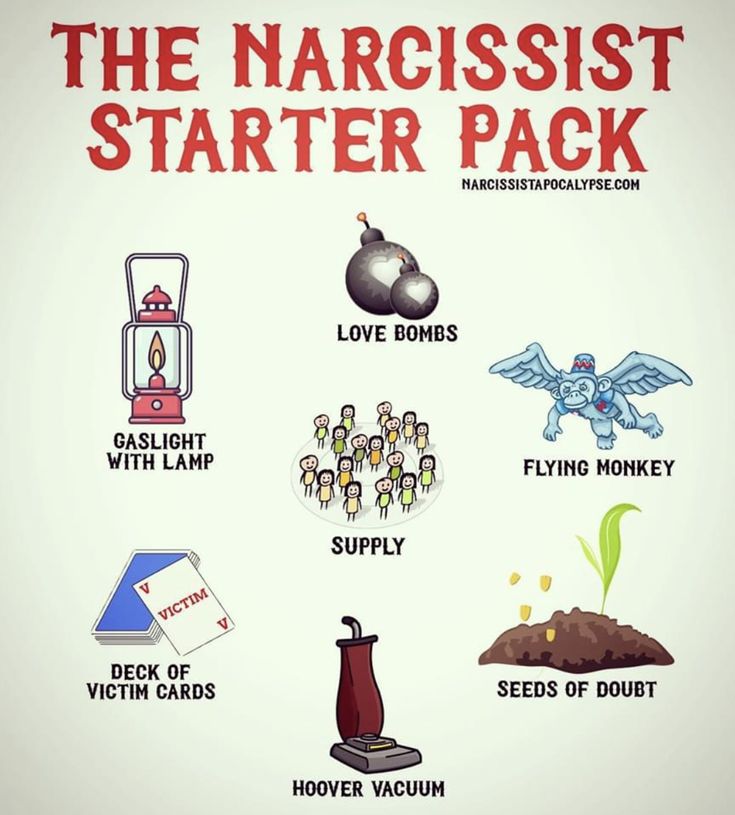
Narcissist hoovering can cause you to feel guilty, insecure, and vulnerable. Yom may give in and decide to give your relationship another shot.
However, your acceptance to play along with their pattern of abusive behavior only gives a narcissist the validation of their superiority and power.
Rejecting a Narcissist HooverIt is essential to understand that hoovering is another form of narcissistic manipulation. So, it is vital not to engage when a narcissist uses the hoovering method. Set firm boundaries and avoid answering their calls and messages.
- If they try using other people to get to you (e.g., telling mutual friends or your family members how much they miss you), ignore these messages and don’t reply using friends and family.
- If you are concerned about the narcissist’s mental wellbeing and safety, contact the police or emergency services, so do not contact the narcissist.

- Remember that narcissists are charismatic and persuasive. Although their big promises, regret, and love acclamations may be tempting, keep in mind that these are just manipulation strategies.
- Seek support. A therapist or coach can help you understand narcissistic manipulation and set healthy boundaries. Coaching can also help you reject a narcissist hoover and avoid returning to an abusive and toxic relationship.
Hoovering is another manipulation tool narcissists use to hang on to their narcissistic supply. They will deploy this strategy when they sense that their victim has gained a sense of personal empowerment or decided to move on.
Understanding what is hoovering and how it can affect you can help you respond to a narcissist’s abuse and disentangle yourself from a dysfunctional and abusive relationship
No one deserves to be stuck in this kind of hurt and you don’t have to suffer through this alone. Read on to uncover what a self-love coach can do to help you rediscover your AuthenticMe.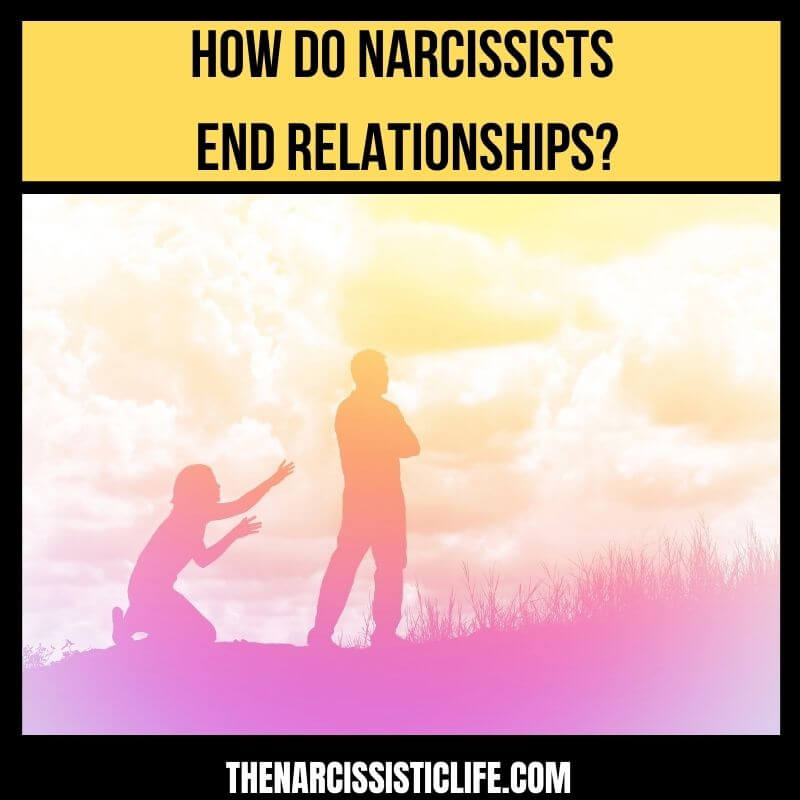
What Happens When You Reject a Narcissist?
Last Updated on July 4, 2022 by Alexander Burgemeester
What happens when you reject a narcissist? Do you think that nothing can bruise the narcissist’s inflated ego? Do you assume the narcissist in your life is immune to feeling hurt or weak? Think again. Although they will never tell you explicitly, the narcissist fears, dreads, and hates rejection more than nearly anything else.
Nobody likes feeling rejected. It’s a vulnerable and painful experience, and it can trigger profound emotions of insecurity and incompetence. But to a narcissist, even the slightest rejection often represents the ultimate form of betrayal.
So what happens if you start to reject and ignore a narcissist? let’s dive in.
Table of Contents:
- Does Rejection Hurt a Narcissist?
- Do Narcissists Like being rejected?
- How do they handle rejection?
- Rejecting them sexually
- Consequences of Rejecting a Narcissist
- Rejection and No Contact
Does Rejection Hurt a Narcissist?
In a short answer, yes.
In a longer and more nuanced answer, it hurts them in ways they will never outright reveal.
So, how do narcissists react to rejection? They react using their typical responses, including variants of rage, defensiveness, denial, and projection. They become mean and spiteful. In other words, they don’t try to understand why someone might reject them. They only know to retaliate.
This is why it’s essential to understand the complex paradox of narcissism. Narcissists are undoubtedly self-absorbed and believe they are superior to other people. They consider themselves above the rules, and they assume they are entitled to whatever they want.
At the same time, despite pretending like they don’t care about other people, they are highly sensitive to any judgments or criticism- to the point where it can be downright debilitating.
Does a Narcissist Like Being Rejected?
You might be saying to yourself, but it seems like they love the negative attention! They don’t seem to care if other people don’t like them!
We all know how much narcissists enjoy arguing and proving their point. We also know that they often act like they don’t even consider other people.
We also know that they often act like they don’t even consider other people.
This behavior often represents a shield. Narcissists like attention, but they hate feeling demeaned, controlled, or criticized. That’s why they often react in such intense ways. They cannot tolerate the notion of someone attacking their ego.
Reading Suggestion: How Dating a Narcissist Changes You
Even a cool, nonchalant demeanor is often a facade. It’s a desperate attempt of trying to pretend the issue isn’t getting to them. However, there is a good chance they are struggling immensely on the inside and plotting their next move for revenge.
How Does a Narcissist Handle Rejection?
When there is any kind of threat to their self-esteem, a defensive stance is taken. Narcissistic Injury is any threat, real or imagined, to the narcissist’s grandiose self-perception (known as the False Self).
Narcissists invariably react with Narcissistic Rage to Injury. Contrary to common opinion. Narcissistic rage is not a reaction to stress – it is a reaction to a perceived slight, insult, criticism, or disagreement-all considered acts of rejection in the mind of a narcissist.
Narcissistic rage is not a reaction to stress – it is a reaction to a perceived slight, insult, criticism, or disagreement-all considered acts of rejection in the mind of a narcissist.
Facing Narcissistic Injury can cause people with narcissism to act aggressively. Narcissistic Rage is the term used to describe this aggression which can include violence. The anger that comes out as a response to criticism can be directed toward others or to the self.
Narcissists respond in various ways, but nearly every reaction includes some form of manipulation or abuse. Let’s have a look at 5 ways how the Narcissist handle rejection.
1. Gaslighting
I never saw us getting serious either. This was just us having a good time.
You’re crazy- I never said that. Why would you even accuse me of something like that?
Oh, I don’t really care what we do. I just thought that’s what you wanted.
Gaslighting happens when a narcissist attempts to make you question your own reality.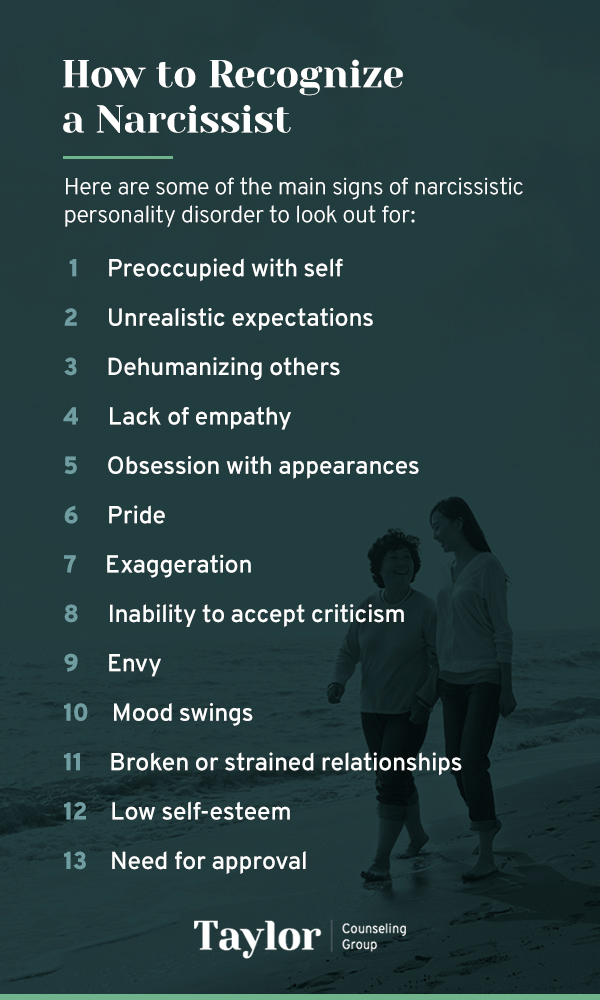 They may achieve this by downplaying, lying, or twisting specific stories. At times, it can be incredibly obvious, but many narcissists also know how to be sly and subtle.
They may achieve this by downplaying, lying, or twisting specific stories. At times, it can be incredibly obvious, but many narcissists also know how to be sly and subtle.
In many ways, gaslighting is the narcissist’s most reliable weapon. They can use it anytime they feel ashamed, embarrassed, or caught off-guard.
When a narcissist feels rejected, they may gaslight you to pretend like they don’t care about the rejection at all. Or, they might insist that you’re overreacting to focus the attention on you and your feelings. In some cases, they might deny doing any of the things that caused the rejection.
Reading Suggestion: What Does a Narcissist Want in a Relationship?
2. Smearing
“She doesn’t want to keep trying. I guess she gave up on our relationship.”
“He’s drinking more than usual. I should have said something to you guys earlier.”
“I’m pretty sure she was cheating on me. My heart is completely broken.”
My heart is completely broken.”
Some narcissists will try to damage your reputation after a real or perceived rejection. They may smear you by trying to convince others that they are the real victims in the dynamic. Often, they elicit this empathy by blatantly lying about your behavior.
Narcissists may smear you to friends or family, but they may also try to destroy your credibility at work, in court, with future partners, or in the community.
Smearing is an act of revenge. When a narcissist feels rejected, they feel vulnerable and humiliated. To cope with these painful emotions, they act out in a way that feels comfortable: by lashing out and hurting others.
3. Fake Apologies
I didn’t mean to do that. It’ll never happen again!
I am so sorry. Please give me another chance.
I’m sorry you’re so sensitive.
What do these apologies have in common? They are fake apologies, and they certainly don’t include any real sense of personal accountability.
That’s because narcissists lack empathy for other people. They don’t care about how their actions might be hurtful or even egregious. They are motivated by their own self-interests and they only apologize to restore a semblance of power and control.
4. Abruptly Moving On
Some narcissists respond to rejection by cutting you off altogether. In doing this, they often jump into a new relationship very quickly. They usually try to flaunt this exciting new life, and they may suddenly become very active on social media as a result.
Their portrayal of moving on doesn’t mean they’ve actually moved on. Most of the time, this is their way of trying to make you feel jealous. Additionally, they’re trying to convince themselves that they never needed you.
Them “moving on” is also a form of punishment. They think they’re hurting you by refusing to speak to you. In some ways, this is the best-case scenario. They’re making a no contact approach simpler for you.
5.
 Giving You What You Want
Giving You What You WantI don’t know why I’ve waited so long to ask. Will you marry me?
You’re right- we just need a better home. Let’s look at houses this weekend.
I’m going to start therapy. Do you want to go with me to the first session?
Some narcissists react to rejection by appearing to recognize their wrongdoings in the relationship. Using this strategy, they attempt to make things right by giving in to your desires.
Unfortunately, their motives often work. Of course, you want to believe that the narcissist can change. You try to give them the benefit of the doubt. So when they make a genuine attempt to improve the relationship with a narcissist, you may start feeling incredibly optimistic.
Reading Suggestion: How Do Narcissists Treat old Supply?
Unfortunately, their changes are not altruistic or generous. They don’t necessarily care about making you feel better- they care about maintaining your usual status quo. Narcissists aren’t stupid. They know how to charm people, and they know exactly how to delight you!
Narcissists aren’t stupid. They know how to charm people, and they know exactly how to delight you!
If the narcissist suddenly makes grandiose promises about the future, be careful. They are probably feeling desperate. Even if a small part of them does want to change for the better, personality disorders tend to be extremely inflexible and rigid over time.
Ultimately, giving them another chance tends to lead to more disappointment. You’ll probably feel frustrated and resentful when they don’t commit to their promise. At the same time, you’ll also feel ashamed or embarrassed that you believed in them in the first place.
What Are The Consequences of Rejecting A Narcissist Sexually?
The narcissist can have extreme attitudes when it comes to sex.
Hyperactive or somatic narcissists rely on their external appearance and charm to win people over. Men in this category may be hyperfocused on their bodies or athletic abilities. Women in this category might undergo multiple plastic surgeries to obtain the perfect look.
Hypoactive or cerebral narcissists focus on attracting people with their intelligence and personality. They may flaunt their successful business or impressive accolades to win over someone’s desire.
At the same time, they may find sex demoralizing or even beneath them. They may judge people for acting so primitive or impulsive. Therefore, they may turn the rejection back onto you by insisting they never wanted sex in the first place.
When a narcissist initiates sex, it isn’t because they want to feel intimate with someone else. Usually, they’re just focused on maximizing their own pleasure. In that moment, you are the person who can evoke that pleasure. If they are trying to attract new a narcissistic supply, sex may represent a “win,” as if they accomplished their mission.
Sex can also represent an act of power. Seduction can be an act of control and manipulation- this is why so many narcissists feel drawn to chase after potential mates or engage in extramarital affairs. In this way, sex becomes an alluring game, a way for them to prove their worth and superiority.
In this way, sex becomes an alluring game, a way for them to prove their worth and superiority.
How does a narcissist deal with rejection in the bedroom? Not well. They may engage in any or all of these abuse tactics:
- Blaming their partner for being prudish, selfish, or cruel.
- Downplaying or completely denying they wanted to have sex in the first place.
- Withholding sex from their partner in the future.
- Cheating on their partner.
- Blaming their partner for causing problems in the relationship.
- Guilt-tripping their partner by lamenting about how rejected or abandoned they feel.
- Shutting down and ignoring their partner for several hours or days.
- Threatening to blackmail or otherwise harm their partner.
- Physically forcing themselves on their partner and sexually assaulting them.
What Are The Main Consequences of Rejecting a Narcissist?
People with narcissistic personality disorder believe they are entitled to special treatment. They think others should adapt and even concede to their needs.
They think others should adapt and even concede to their needs.
Moreover, they expect ongoing admiration and validation. Although they may present with high self-esteem, their egos are incredibly fragile. Therefore, if someone or something challenges those needs, they may automatically assume they are being rejected.
Narcissistic rage tends to be the most common reaction to rejection. This rage includes an extreme outburst of anger, paranoia, passive-aggression, and avoidance. It’s a response to narcissistic injury, which refers to the narcissist’s experience of feeling challenged, ridiculed, or insecure.
Rejecting A Narcissist Hoover- Now What?
You’ve stayed strong despite the pain and anguish. You’re doing your best to move on and heal from the narcissistic abuse. But they still won’t leave you alone. They’re still doing everything they can to lure you back into their lives.
So, what happens when you reject a narcissist and their hoovering?
At first, they tend to escalate their antics.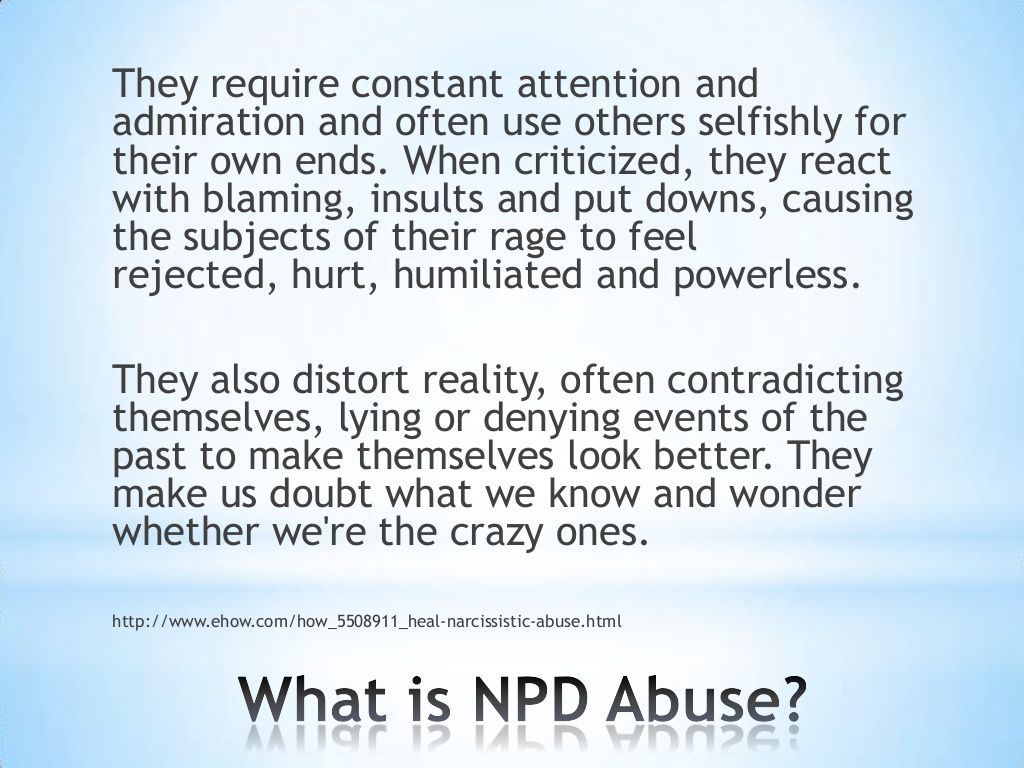 If they called you once a week, don’t be shocked if they’re now calling you multiple times a week. If they sent you flowers one time, you may get flowers with a box of chocolates next month.
If they called you once a week, don’t be shocked if they’re now calling you multiple times a week. If they sent you flowers one time, you may get flowers with a box of chocolates next month.
They use hoovering to try to convince you that you’re wrong for rejecting them. All hoovering is designed to win you back. Remember that the next time you feel convinced they’re being genuine or sincere. They want to prove that this time will be different. They want you to second-guess your reasons for leaving or rejecting them.
Keep in mind that any response to their hoovering gives them attention. Most narcissists don’t delineate between positive and negative attention. Just like a toddler, they take what they can get.
How Does A Narcissist Handle Rejection and No Contact?
If being rejected is the ultimate form of betrayal for a narcissist, the concept of no contact almost feels foreign and inconceivable. When you truly walk away from the relationship, you choose to walk away from their abuse.
This often feels jarring to the narcissist. After all, they believe you’re fortunate to have them. They can’t understand why you would ever want to turn your back on the relationship.
Can a narcissist handle rejection and no contact? At first, they will throw a temper tantrum. They may try every manipulation strategy in the book. Expect the smearing and gaslighting and constant hoovering. Expect them to suddenly move onto a new partner and new life.
This is part of their personality, and it’s how they cope with being rejected. But if you continue to stay in the relationship, your mental health with continue to suffer.
Loving a narcissist often entails sacrificing your happiness, safety, and overall identity. Over time, it can take everything out of you. You deserve to feel respected and loved in your relationships. If the narcissist can’t meet these needs, it’s worth reconsidering your options.
How to recognize a person with narcissism
July 19, 2022 Likbez Health
Psychotherapy may be required even for those who associate with a narcissist.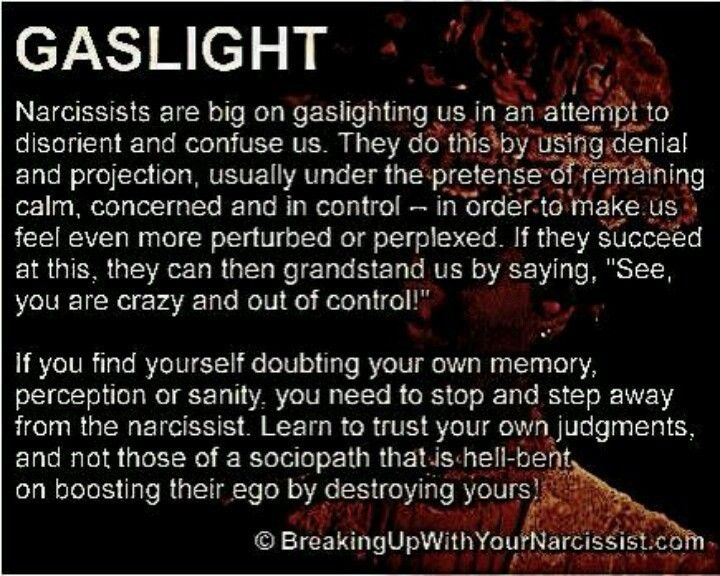
You can listen to the article. If it's more convenient for you, turn on the podcast.
Narcissists are traditionally called narcissists, fixated on their own person. However, not every narcissist suffers from narcissism.
Narcissistic personality disorder has very specific symptoms.
How to recognize a person with narcissistic personality disorder
Every psychotherapist's reference book, the current edition of the Diagnostic and Statistical Manual of Mental Disorders (DSM-5), lists nine signs of a true narcissist. At the same time, it is enough to make a diagnosis if a person meets only five of them.
1. Maintains relationships with “special” people
The narcissist always has authoritative, influential acquaintances from circles that are difficult for “mere mortals” to access: businessmen from the top hundred of the Forbes list, brilliant artists, owners of various rarities, close friends and lovers of world famous stars. Well, at least the narcissist himself likes to talk about such connections.
A person with a narcissistic disorder uses the status of acquaintances as a way to increase self-esteem and authority in the eyes of others.
By the way, this is one of the reasons why daffodils seem so attractive, why it is easy to fall in love with them and difficult to leave them. When a person is “with such connections!”, “so sophisticated!” suddenly draws attention to you, it tickles pride very much. It’s as if you are on the same social level with the narcissist’s great acquaintances and begin to feel “special” too. And this is a kind of psychological drug, which is hard to give up.
2. Often talks about his own victories and achievements
Whether it's a controversial moment at work, a conflict in a store or public transport, a random traffic light race - the narcissist emerges victorious from any situation. In fact, that's what he tells the people around him.
It is important for Narcissus to demonstrate that he is the best and smartest of all. This helps him feel more confident.
Jacqueline Krol
Psychotherapist, for Healthline online edition
It is typical that stories about victories always proceed in the form of monologues. Narcissists need admiring listeners. As soon as one of them begins to pull the blanket over himself and talk about his own achievements, the person with narcissism gets bored and turns off the conversation.
3. Needs compliments and can't stand criticism
From the outside, the narcissist seems to be an extremely confident person. But, as experts suggest, most people with narcissistic personality disorder have serious problems with self-esteem.
That is why they expect constant compliments from others. If admiration is not enough, or worse, the narcissist is criticized, they react very emotionally. Can theatrically exclaim: "I'm not appreciated here!" Often reproaches relatives and colleagues for inattention and callousness. Because of the slightest remark, he may cry or run away, slamming the door and shouting something insulting in the end.
Then, perhaps, he will return to still get recognition from you. For this, the narcissist manipulates guilt: it is not he who is emotionally unrestrained, but you meanly offended him, underestimated and provoked him.
4. Seems to be a dreamer and idealist
Narcissus seems ideal to himself and therefore counts on a special, impeccable life. And if something does not work out, the responsibility for it shifts to the people around.
If there are difficulties in love or family relationships, the partner is to blame: he didn't look the right way, did the wrong thing, didn't appreciate it. “All women are bitches, and I am looking for that one, my soul mate who will understand me” is the demonstrative position of the classic narcissist.
Narcissistic personality disorder is more common in men. At risk are young (under 45) unmarried people.
If it doesn't work out with a career and money, the society is to blame, of course. More precisely, his successful representatives, who (from the point of view of a narcissist) probably achieved their position with the help of influential relatives, through bed, by deceit. Narcissists often oppose themselves to society, emphasizing their status as an unrecognized genius and a lone wolf, disappointed in an imperfect world.
5. Feels worthy of special treatment
This means that the narcissist demands more rights for himself than for others. He will not stand in line - he will find a way to get into the right office or to the counter first, even if it turns into a scandal. He expects priority service at the restaurant. Or he sincerely counts on an “understanding” attitude from his superiors, even if he is late for the fifth time in a week or misses a deadline.
He "needs" to sit at the window, open (or close) the window or do his hobby - instead of washing the dishes, cleaning or going shopping.
The interests of a person with narcissistic personality disorder always come first. People around are encouraged to come to terms with it.
6. Often arrogant, shows disrespect for those who are lower in status
One of the characteristics of the classic narcissist is a sense of superiority over others. This is clearly shown in situations where a person suffering from narcissism is faced with the service industry. He can be rude to waiters, wardrobe workers, consultants, petty clerks. Subordinates or those who are younger also suffer from his arrogance.
If the narcissist is reproached for this, he will explain his behavior with shortcomings in the work of the "lower class" and say that he simply demands a little respect for himself.
7. Exploits others
For a narcissist, it is in the order of things to be served, and he is not interested in what forces and at the expense of what this is achieved. For example, in family relationships, he will expect dinner, cleanliness and excellent physical shape from his partner - simply because he “should” (even if he has two jobs, a child and an objective lack of time for sports).
If the partner tries to rebel, discounting, gaslighting and other abuse techniques will be used.
8. Openly manipulates people
Pressing on pity, hitting on feelings of guilt and conscience, twisting the facts and blaming others for what they did not do - this is not a complete list of what the narcissist does to achieve his goals.
It cannot be said that he manipulates consciously. It’s just that this is how his psyche works on justifying himself and blaming others.
9. Not able to empathize
Lack of empathy (sympathy for the experiences and problems of others) is one of the most characteristic signs of a narcissist.
A person with narcissistic personality disorder is completely self-centered. To delve into other people's problems, to provide support for him is simply boring.
This is one of the reasons why narcissists almost never have long-term relationships, either friendships or romantic relationships.
What to do if a person is a narcissist
Narcissism is one of the least understood personality disorders. It is extremely difficult to treat, as narcissists usually do not believe that they have mental health problems. On the contrary: they are sure that others have problems, which means that they should be treated.
In addition, narcissism is often accompanied by other types of mental disorders - manic-depressive psychosis (bipolar disorder), depression, anxiety and dissocial (sociopathic) disorders. So therapy, even if the narcissist agrees to it, runs the risk of being long and complicated.
What should you do if you encounter a narcissist? The least energy-consuming, but also the least humane way is to run away from him.
If you have the opportunity not to take on the solution of other people's psychological problems, it makes sense not to do this.
However, this is not always the case. After all, a colleague, a valuable business partner, a close relative, or even a loved one can be a narcissist. Refusal to communicate will be tantamount to a complete severing of these important ties.
In this case, the only thing left is to persuade the narcissist to see a psychotherapist. The doctor will get to know the patient better and, depending on his condition, will select the most effective type of psychotherapy. Sometimes, in addition to it, medication may be needed - antidepressants and antipsychotics.
Psychotherapy will also be useful for you if you are forced to contact a narcissist every day. Communication with a person who suffers from narcissistic personality disorder has a destructive effect on people close to him: it undermines self-esteem, makes you doubt yourself, and can provoke the development of an anxiety disorder or depression.
Read also 🧠🧠🧠
- 7 Rules for a fulfilling life with Bipolar Disorder0115 When passive aggression becomes a personality disorder and what to do about it
- How to recognize alcoholism, depression and other mental disorders
- How to take care of loved ones with mental disorders
Psychology of narcissism and its features
The term narcissism appeared in psychology quite a long time ago, in the time of Z. Freud, and got its name from the mythological young man Narcissus, in love with his reflection in the water and the deceased is unable to tear his eyes away from his reflection. He never managed to love anyone but himself. Despite what has been known about narcissism for so long, there are still quite a few narcissists in the modern world, and we still encounter them in our family, at work, among friends, and we can also notice signs of narcissism in ourselves.
Narcissists are people who look arrogant, present themselves as having exclusive rights, demanding special treatment, but at the same time inside they are very insecure, vulnerable people with incredibly fragile self-esteem. This amazingly coexists in one person. Grandiosity and uncertainty coexist in one person when grandiosity, arrogance are protective formations, that is, in fact, a person does not feel his greatness and even his value, he feels insecure, insignificant and tries to feel better by showing only achievements and various attributes of its exclusivity. When we deal with a person with such problems, we may assume that he has narcissism or narcissistic personality disorder.
The main problem of the narcissist is that he does not really feel significant, good, deserving of love, he constantly needs to achieve something special, “increase” his significance, confirm exclusivity, stand out from other people, otherwise he feels very bad. This can be expressed in the fact that he will reach more and more heights, but he cannot feel pleasure from this, there is only temporary satisfaction and then again emptiness and everything must be repeated again and again. Even a little criticism from outside can dilute their sense of satisfaction from what they have done, comparison with others can destroy their own significance with incredible ease. Not always the achievements that the narcissist talks about are real achievements, sometimes it's just bragging from scratch, so strong is his need to seem more significant than he is.
The causes of such problems lie in early childhood. One of them is when, in a relationship with a mother, a child does not receive the support, understanding and love he needs, and not finding such an understanding and loving person and not learning to love from him, he gives up trying to find this love from another person and redirects his love to himself. . He seems to be saying: “Well, then I don’t need anyone, I will love myself.” But in fact, it is quite difficult to give up the desire to have loving and understanding parents, a person still needs good, idealized parents, but since real parents did not justify his trust, as if they betrayed him, a person in return unconsciously forms an ideal image in his psyche, an ideal self-image (ideal version of a person) to which it aspires. From this comes the unconscious desire for achievement, greatness, grandiosity.
The second reason also comes from childhood - it occurs when a small child is given tasks about achievements, they decide what he should achieve, without taking into account his abilities, desires and needs, the child's individuality is ignored, it seems to him that he will be loved only for certain achievements . Such a child is for his parents their narcissistic continuation, very often the child is told that he needs to achieve what the parent could not, or his achievements are boasted to other people. In such a situation, the child develops a false self, a false idea of himself, he does not know what he really is, and, as an adult, he also continues to follow parental attitudes, essentially living a life that is not his own.
Such neglect of the child's personality hurts him very deeply, sometimes so much that it is no longer possible to build normal relationships with other people, on an unconscious level, relationships are a great danger for him, people are felt as unreliable, capable only of betrayal, use and lies. Sometimes narcissists cannot build an ideal image even in themselves, they can only idealize the bad, because there was so little good that it was not possible to keep it in the psyche. In this case, we will be surprised when faced with such a narcissist, why is he so aggressive, angry, why is he destroying himself and everything around.
If, nevertheless, relations with narcissists develop, then it is not easy with them, because of their childish resentment and unconscious attitude to love themselves and not need other people, it can be difficult for a narcissist to form warm, mutual relationships. In a relationship, he is looking for a person who will reflect him, admire him. He needs mirror people or people who have status in society or are admired. He needs them to emphasize his significance and greatness. It often happens that a narcissist chooses a person for external data or other successes and is not able to notice, appreciate his inner world and his feelings. This can hurt his spouse or partner very much. Some narcissists are lonely because they can't find the perfect person to suit them, or they can't let someone close enough to them without feeling uncomfortable. Unconsciously, they do not allow themselves to need anyone.
Many narcissists are interesting, successful and even talented people, but from time to time their loved ones will notice that they are being manipulated, the narcissist uses them for his own purposes. It can sometimes just be felt when, in dealing with a narcissist, you lose a sense of self-confidence and it seems that all your successes and dignity do not matter. It is very difficult for a narcissist to succeed and be superior to other people, their self-esteem drops greatly in such cases, and in order to restore their self-esteem they need to devalue the successes and achievements of those they envy. Narcissists tend to be jealous and often feel ashamed, the worst of which is because of their imperfection. If the narcissist's self-esteem is severely hurt, then narcissistic rage, anger and hatred of incredible strength can be encountered.
The extreme degree of narcissistic disorder is a serious problem, it is very difficult to face egocentrism, devaluation, manipulation, narcissistic rage and remain calm, not react emotionally. Only understanding the essence of narcissistic problems can help us maintain a sense of self-control, seek warm, human contact with narcissists, “break through” to their vulnerable soul through the armor of arrogance, grandiosity and rage.



